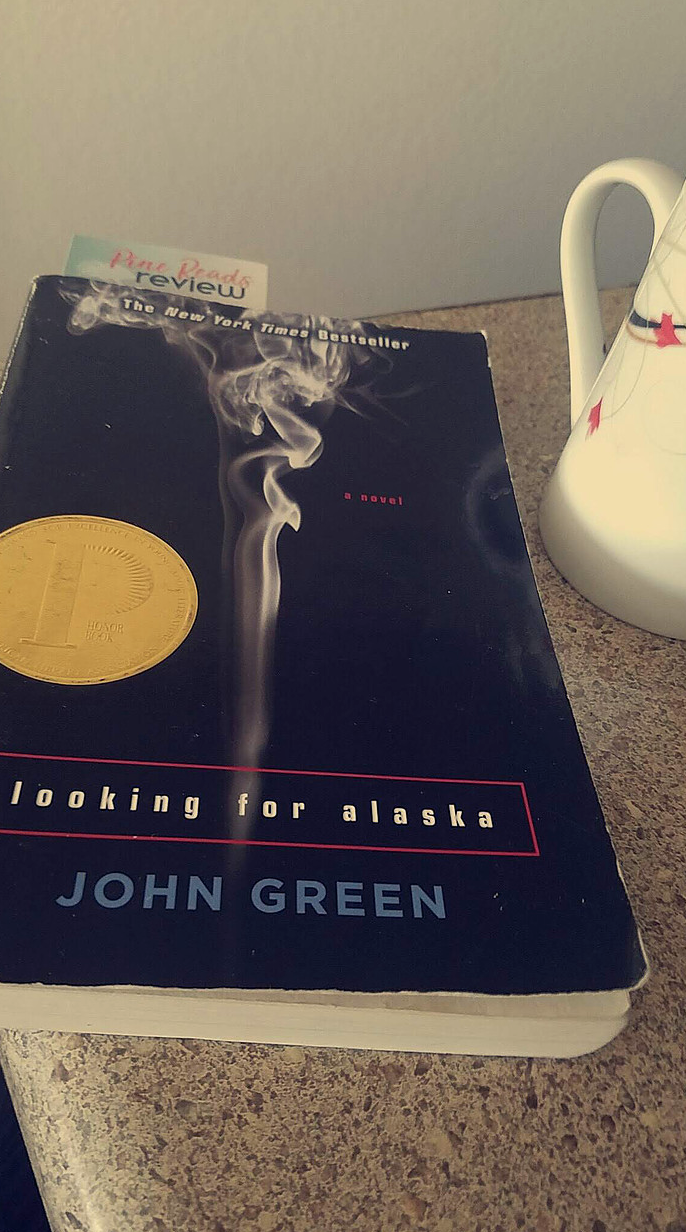
If you haven’t already heard the news, fans of John Green’s novel, Looking for Alaska, can look forward to an eight-episode mini-series based on the book. But how closely will it stick to the book? I don’t expect it to stay entirely true to the book. In fact, I’m hoping for some changes, hoping that the series will improve and expand on areas the book itself fell flat in. The two main areas deal with romanticization and mental illness.
Alaska Young. Alaska freakin’ Young. She’s beautiful, mysterious, and moody – she’s basically the perfect example of how you shouldn’t romanticize a person, especially not young women. Upon re-reading the book, I tracked Pudge’s perception of Alaska closely, and boy is it concerning. Pudge grossly romanticizes Alaska Young, chalking her up to be the answer to his “Great Perhaps”. She’s his manic pixie dream girl, only worth investing time and emotion in if she can better his life. As soon as she acts in opposition to his dream-girl outline, he loses interest.
“She’s cute… but you don’t need to like a girl who treats you like you’re ten: You’ve already got a mom.”
Romanticizing a young person can lead to a dangerous misunderstanding of them, and even a toxic view of them. This is extremely evident after Alaska dies. When Pudge is thinking about her, he is only ever really thinking about her in terms of an imaginary relationship she failed to fulfill for him. “She was dead. She was warm and soft against my skin, my tongue in her mouth, and she was laughing, trying to teach me, make me better, promising to be continued.” Seriously, Pudge? This girl died, and all you can think about is her body, experiencing her body, and all the ways she failed to fulfill the role you designed for her? She had an entire future, but he only thinks about her future as benefiting him. Even shortly after this phrase, he says, “I have lost something important, and I cannot find it, and I need it”. Because Pudge spends the text romanticizing Alaska, she transforms into a “something”, and a “something” that benefited him, created to make him better.
Pudge does get called out on this, by both the Colonel and Takumi. “All that matters is you and your precious fucking fantasy that you and Alaska had this goddamned secret love affair and she was going to leave Jake for you and you’d live happily ever after.” Despite the harshness of his words, I was cheering the Colonel on for calling Pudge out on his bull. But it still doesn’t feel like enough. Pudge spends the entire book idealizing Alaska, but is only called out on it a couple of times, and hardly ever self-reflects (and if Pudge is narrating from a point in time after Alaska has died, as John Green himself states, then he is still romanticizing her, and has hardly learned his lesson). I do believe this book is commenting on the dangers of romanticizing someone you love, but I don’t think it does it strongly enough. I’m hoping, I’m really hoping, that the series either avoids romanticization entirely (doubtful), or makes a stronger commentary against it (I really do hope so).
Which brings me to my next point, continued on next week’s blog post.
PRR Editor, Matty Ortega